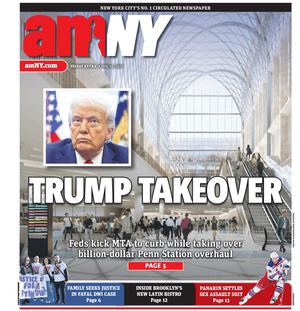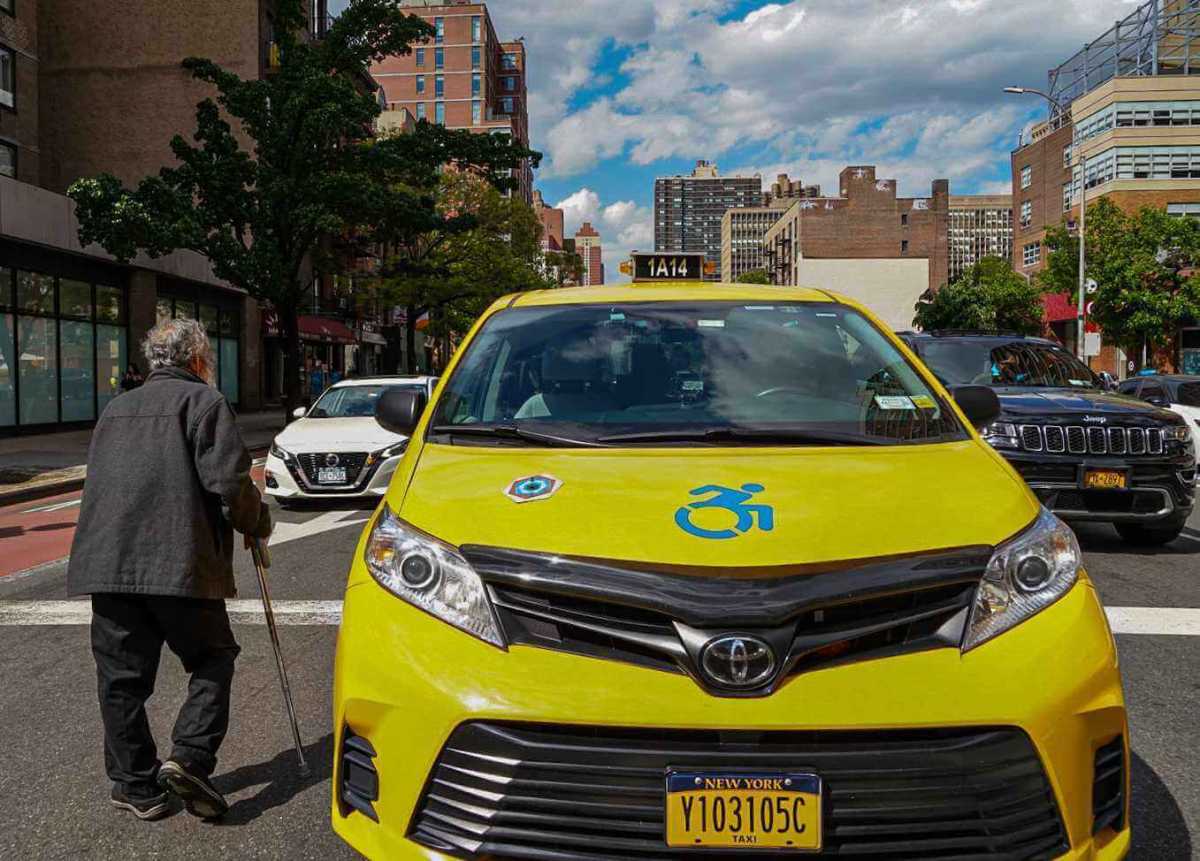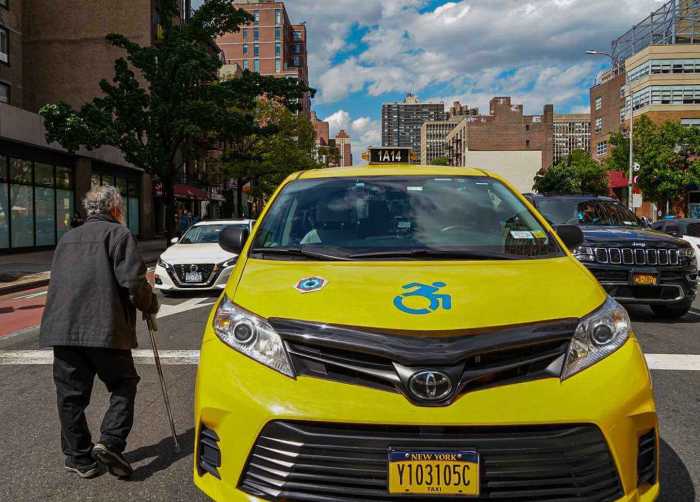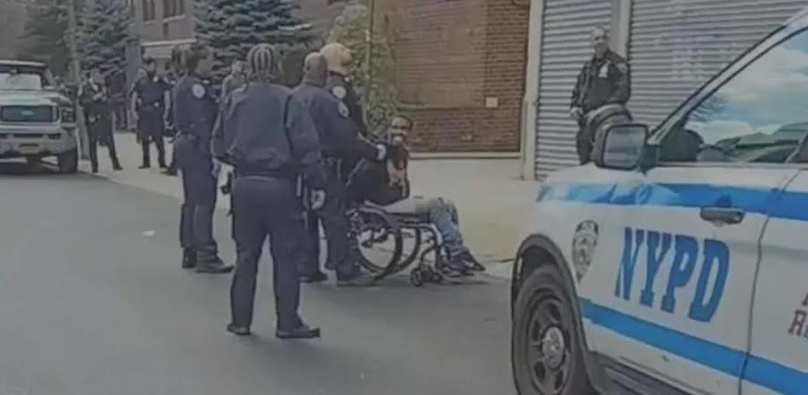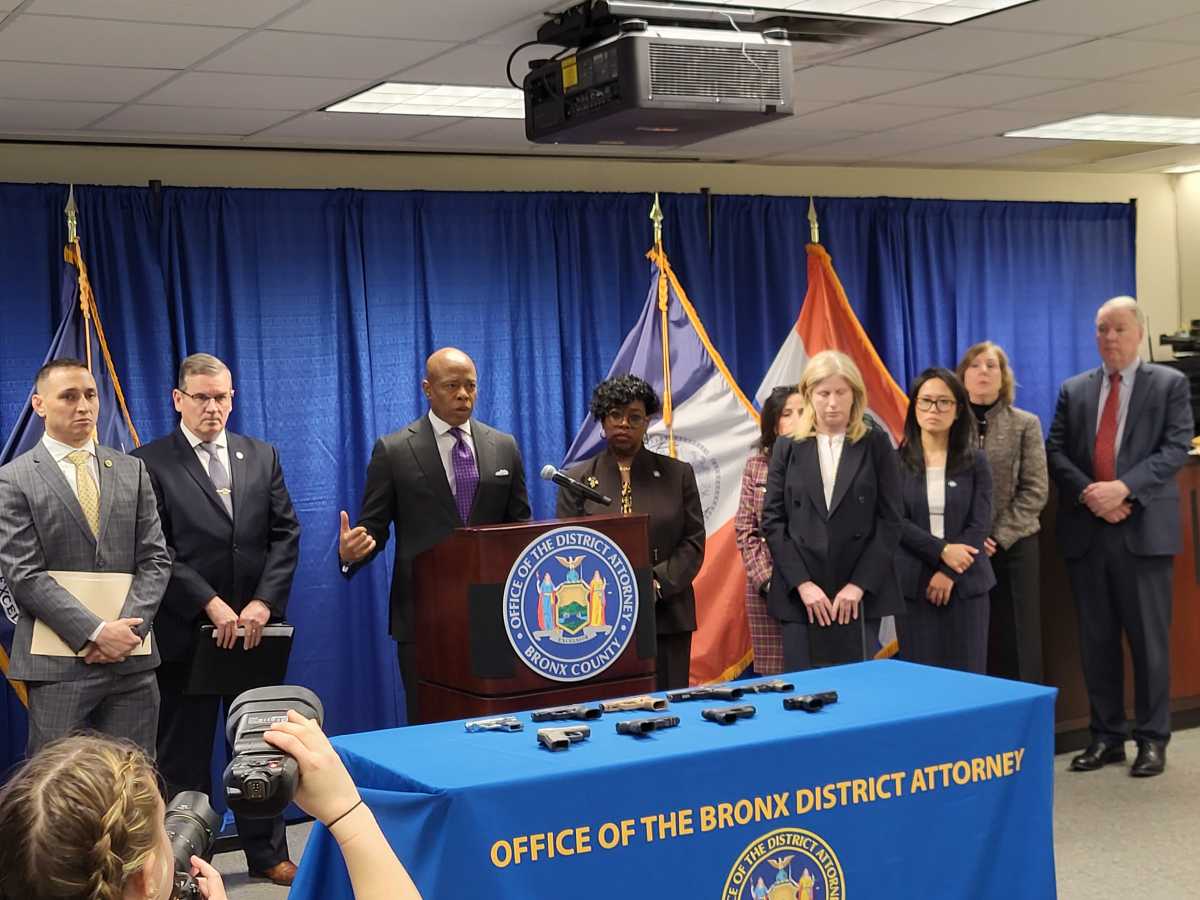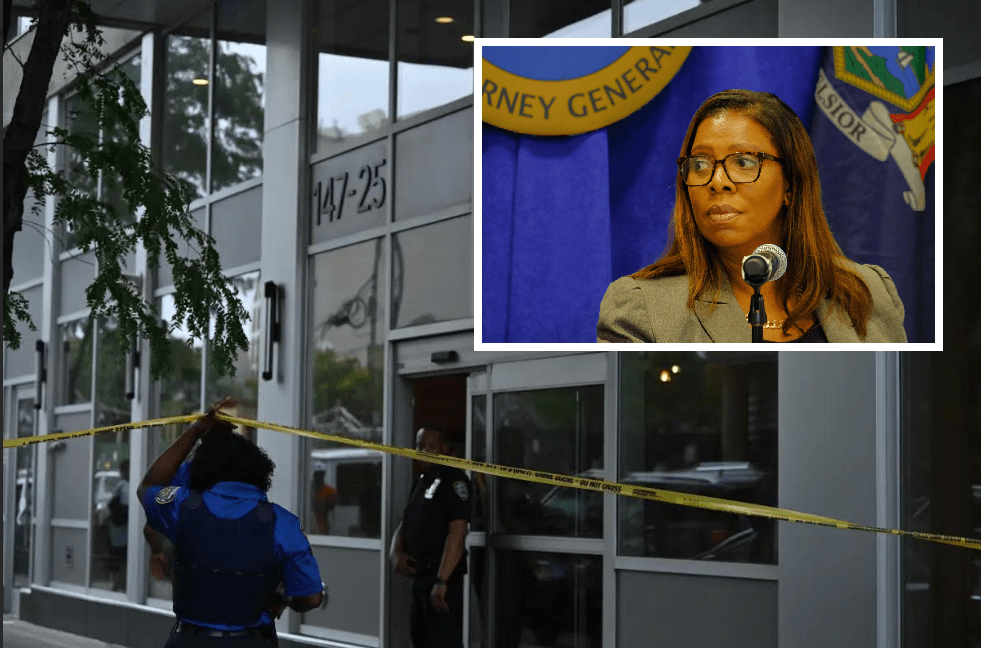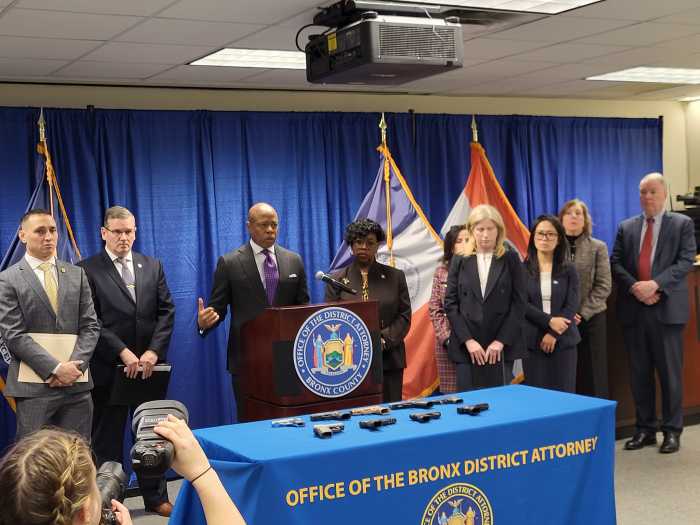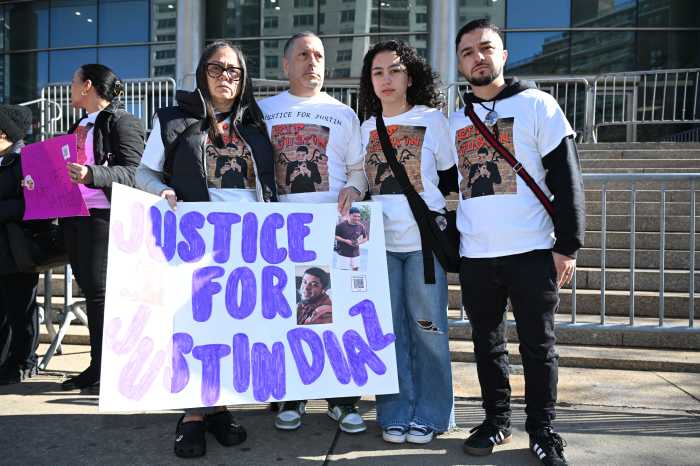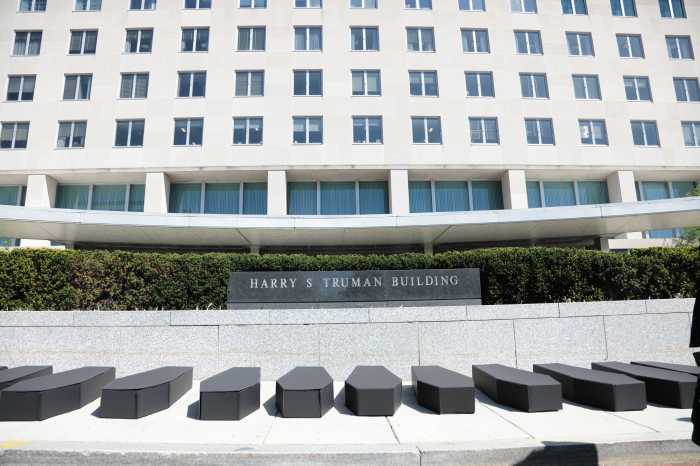A federal judge on Tuesday blasted the New York City Taxi & Limousine Commission for attempting to wriggle out of its obligation to make half of the yellow cab fleet accessible for wheelchair users, and ordered the city to come up with a solution to meet the mandate of a decade-old settlement.
The city agreed in a 2014 settlement that at least half of yellow cabs on the road would be wheelchair-accessible by 2020, but the deadline came and went, and today only about a third of the Big Apple’s 13,000 yellow taxis are accessible. Earlier this year, the city submitted a motion to the federal judge overseeing the case, Judge George Daniels, seeking to be relieved of its obligations under the settlement, which “shocked and disappointed” the plaintiffs.
During a hearing at the Southern District of New York on Tuesday, Judge Daniels appeared unconvinced by arguments advanced by the lawyer representing the city, Michelle Goldberg Cahn.
She contended the accessibility requirement was too burdensome for an already struggling industry, causing many cab drivers to “pack it in” and quit the industry or drive for Uber, but did not present any data to support her case. She also posited that the agreement to make half of the 13,000 taxis accessible couldn’t be achieved when many medallion cabs are sitting in storage, but the judge responded that that should, if anything, make it easier to achieve the goal.
“I’m not sure having a wheelchair-accessible taxi is more detrimental rather than advantageous to the taxi industry,” said Daniels. “They get more riders!”
About 4,400 of the city’s 13,587 taxis are wheelchair-accessible, said Goldberg Cahn. About 3,700 of those 4,400 are currently in service rather than storage, she said, with the number in service for the whole fleet standing at about 9,000. That comes out to over 41% of the active fleet being accessible.
Daniels took particular exception to learning that drivers of wheelchair-accessible taxis can turn in their vehicle for retirement and trade it for a non-accessible car. Those driving inaccessible vehicles must trade them in for an accessible one after the mandatory seven-year retirement term.
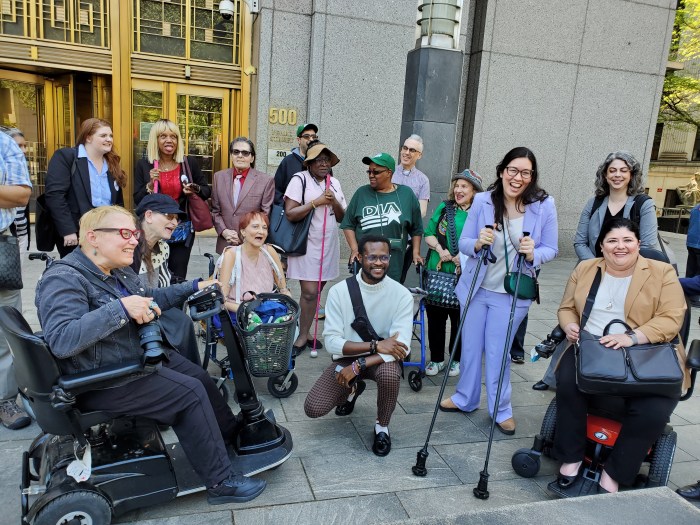
The TLC contends this rule is in place because the cost of purchasing and maintaining a wheelchair-accessible car is often prohibitive compared to a standard one. But Daniels countered that the TLC was setting itself up to fail in meeting the settlement terms.
“You’re inherently creating a situation where you can’t meet the timeline,” said Daniels. “You’re losing numbers, not gaining numbers.”
Daniels ordered the TLC to produce, within two weeks, a letter detailing the procedures necessary to reach a 50% accessibility rate, said plaintiff lawyer Damani Sims of Sheppard Mullin law firm.
“We just want to make sure that him allowing them two weeks to file that letter holds their feet to the fire and holds them to their obligations under the contract,” said Sims. “That they show that they can meet this because they can meet this. They shouldn’t be let out of the obligation.”
Sims said it was “likely” “on the table” that Daniels would ultimately order that whenever an existing taxi is retired, drivers must replace them with a wheelchair-accessible car.
“The burden is on [the TLC], and they have to come up with a solution. They need to come up with how they can achieve 50% accessibility for the entire fleet. And we’re gonna respond to that, and we hope that they honor their obligation today because prior to coming to court today they clearly didn’t. And I think the court took note of that.”
Reached for comment, the TLC noted that there are now 18 times as many wheelchair-accessible taxis today as when the litigation commenced in 2011. When including Ubers and Lyfts — all of which must be accessible or electric by 2030 — there are thrice as many accessible vehicles on the road today as in 2019.
“We are committed to accessibility and ensuring that wheelchair-accessible taxis and for-hire vehicles are widely available. Factoring in our entire fleet, we now have almost three times the number of accessible vehicles we did five years ago. We will be working to provide Judge Daniels with the information he requested to make an informed decision.”
On Wednesday, the TLC will hold a public hearing on a rules package that would eliminate required retirements for accessible taxis and increase the amount of money disbursed by the Taxi Improvement Fund to finance their purchase.
For those who rely on accessible taxis, though, the matter is one of simple equality under the law. Disabled commuters already struggle to use a transit system where fewer than 30% of subway stations are accessible, while the feds have accused the MTA of not providing equal protection to disabled riders using Access-a-Ride.
“It makes my life really, really difficult,” said Rebecca Williford, CEO of plaintiff Disability Rights Advocates. “All we want is equality, it’s a basic right. We want to be able to work, we want to get out and have fun. We want to get to doctors’ appointments. We want to live our lives, but instead we’re fighting these battles just to get from point A to point B. And it shouldn’t be that way.”
Read more: MLB Power Rankings 7.0: Phillies Soar, Yankees Hold
